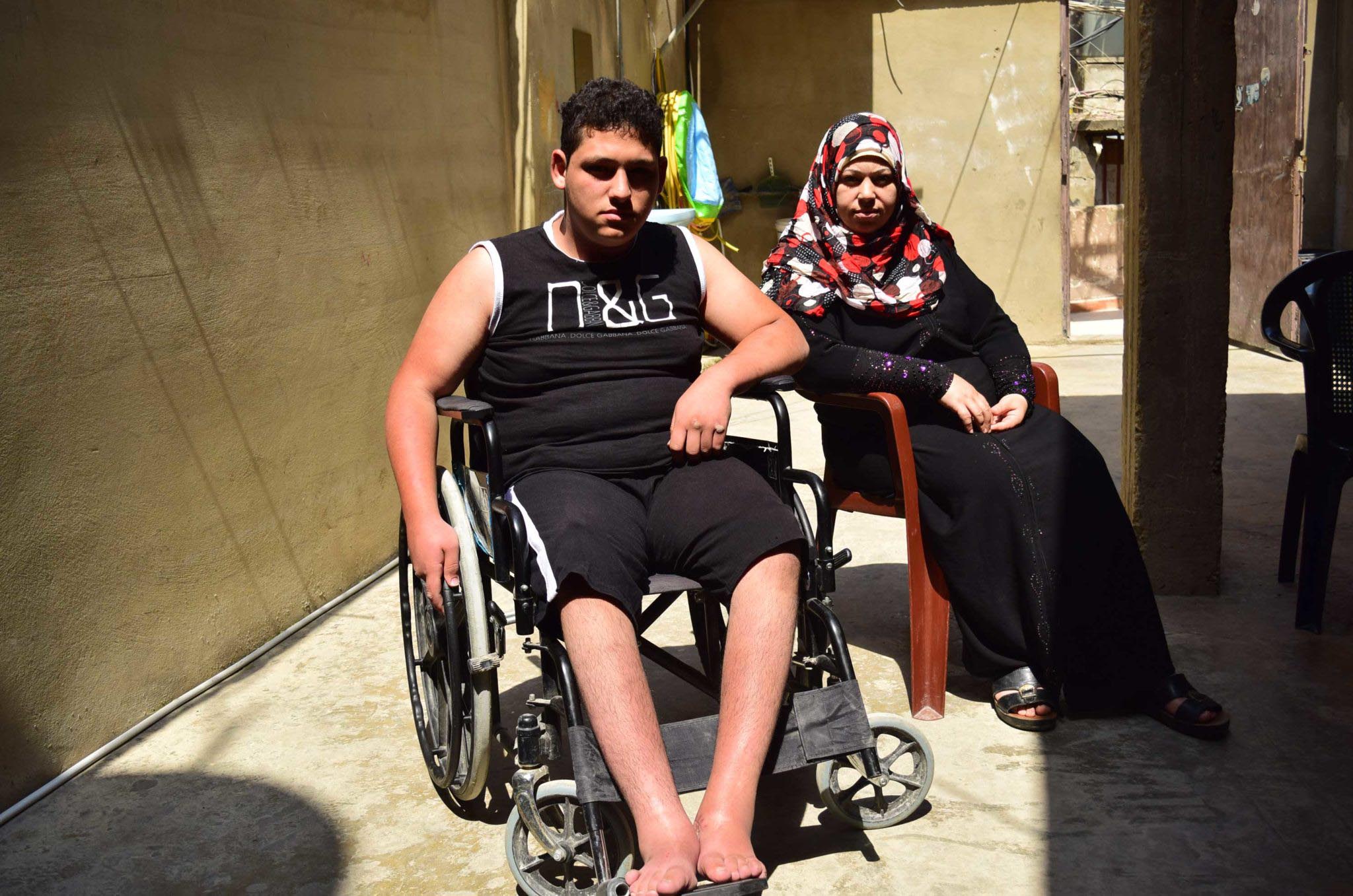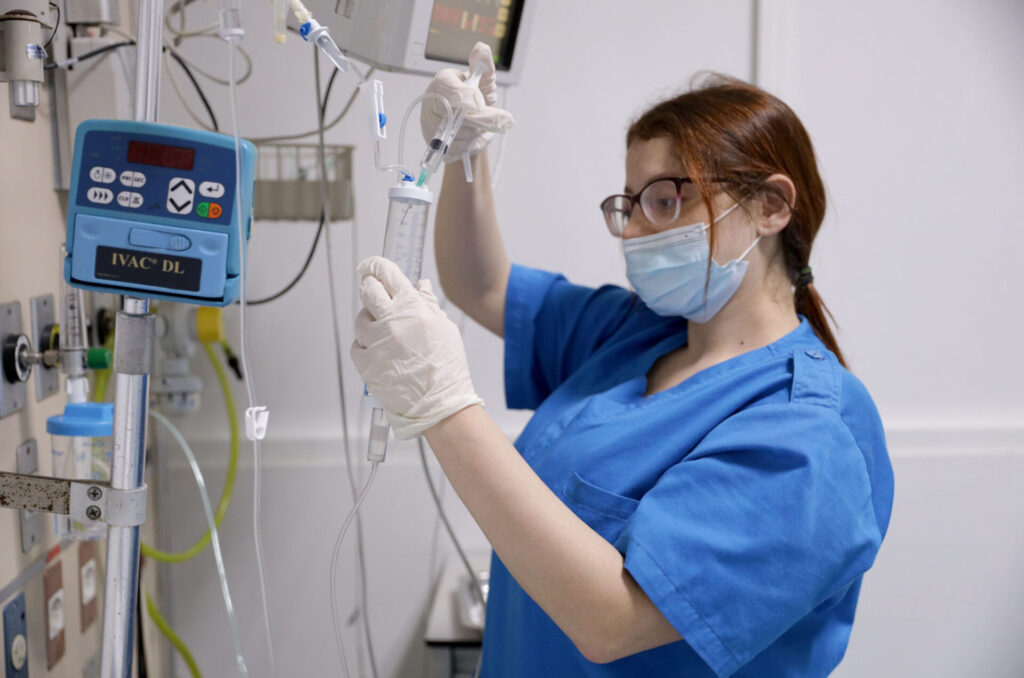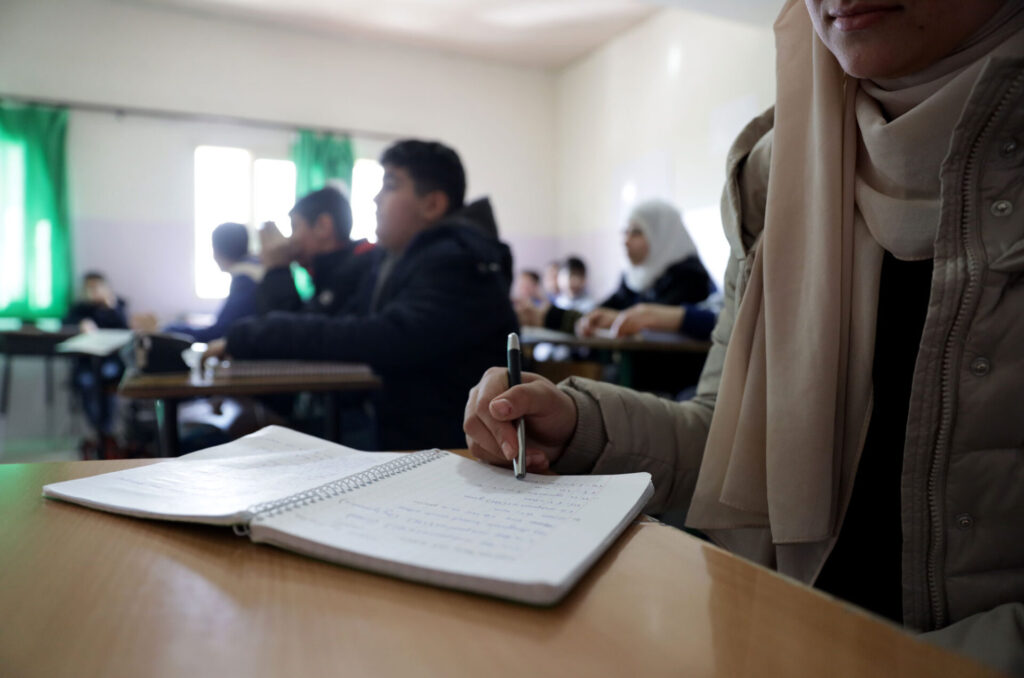Aug, 2015
Ahmad Kassem El Jaber is 16 years old. He lives in Ein El Helweh refugee camp in Lebanon.
His life is far from easy: he has had multiple sclerosis since the age of three, which affected the nerves in his brain and spinal cord, limiting his muscle movement, balance and vision.
At six, Ahmad entered UNRWA’s school, but it wasn’t fun. He couldn’t take part in any sports activity and it took him a long time just to walk up and down the stairs to class. He faced constant bullying and often spent recess in the principal’s office to avoid the other kids.
“At school, kids used to hit me and run, knowing that I couldn’t follow them with my crutches. I was full of anger, disappointment, shame. I went home and cried my heart out. I told my parents I wanted to leave school.” Ahmad was only eight years old at the time. His parents tried to persuade him to go to school but he just wanted to stay home and hide.
Eventually he dropped out of school. “My health deteriorated,” he continues. “I went from crutches to a wheel chair and my feet were getting weaker so going to school or doing anything was mission impossible.”
Ahmad didn’t want to be a financial burden to his family so at 14 he joined a vocational training course. “I was doing well, but I needed to go to the bathroom a lot and the teacher didn’t help or understand my condition, so I left and didn’t go back.”


I went from crutches to a wheel chair and my feet were getting weaker so going to school or doing anything was mission impossible.


Anera Classes for Refugee Youth in Lebanon Open Doors
Ahmad’s life took a turn for the better when a social worker from the community organization Najdeh Association told his mother about a new program, designed by UNICEF and implemented by Anera, to provide classes for refugee youth in Lebanon. The program works with teens who have dropped out of school for a variety of reasons, including health problems.
Anera’s innovative refugee non-formal education model is tailored to the needs of a target group of some 5,000 underserved Syrian, Palestinian and Lebanese boys and girls between 14-18 years of age. The program, which operates in both northern and southern Lebanon with support from UNICEF, teaches critical skills through a flexible study program focused on math, English and Arabic. The program also helps reintegrate youth into the formal education system and improves job prospects through transferable and vocational skills training.
Ahmad Becomes Determined to Succeed in School
Two weeks after class began, Ahmad had surgery on his legs to help him to walk. But he is determined now to return to school. “I love the teachers and made some new friends, because we all realized we come from the same background and shared the same experience — dropping out of school,” he explains. “But here nobody judges anyone for that. We all have been victims of circumstance.” Ahmad is determined to finish the course and find a job to be independent and less of a financial burden to his family.
Ahmad admits he used to wish he would just die, but not anymore. “Now I know I will have the skills to earn a living, and I will save money, have my own family and raise my children to be happy and strong and not let anyone stop them from doing whatever it takes to be independent and successful.”




